#google cloud platform
Explore tagged Tumblr posts
Text
How to Migrate WordPress to GCP Server Using WordOps and EasyEngine
Migrating a WordPress site to Google Cloud Platform (GCP) offers numerous benefits including improved performance, scalability, and reliability. In this comprehensive guide, I’ll walk you through on how to migrate WordPress to GCP using WordOps and EasyEngine, with special attention to sites created with the --wpredis flag. This guide works whether you’re migrating from a traditional hosting…
#cloud hosting#Database migration#EasyEngine#EasyEngine to WordOps#GCP#Google Cloud Platform#How to#rsync#Server migration#Server-to-server WordPress#site migration#Site migration guide#SSH key setup#SSL certificate setup#WordOps#WordOps configuration#WordPress database export#WordPress hosting#WordPress hosting migration#WordPress migration#WordPress Redis#WordPress server transfer#WordPress site transfer#WP migration tutorial#WP-CLI#wp-config
0 notes
Text
Google Cloud Networking: Key Services and Best Practices

Introduction
In today’s digital world, businesses rely heavily on cloud computing to ensure agility, scalability, and security. Google Cloud Networking plays a crucial role in providing a robust and secure infrastructure for organizations to run their workloads efficiently. Whether you are hosting applications, managing hybrid cloud deployments, or ensuring high availability, Google Cloud offers a range of networking services to meet your needs.
In this blog, we will explore the key services of Google Cloud Networking and the best practices to optimize your cloud infrastructure for performance, security, and cost efficiency.
Key Google Cloud Networking Services
1. Virtual Private Cloud (VPC)
Google Cloud VPC enables users to create logically isolated cloud environments with custom IP ranges, firewall rules, and subnets that span multiple regions. With VPC, businesses can efficiently manage their cloud resources while maintaining network security.
Benefits:
Global networking with automatic scaling
Secure communication with private Google access
Customizable firewall rules for enhanced security
2. Cloud Load Balancing
Cloud Load Balancing is a fully distributed, software-defined service that helps distribute incoming traffic across multiple resources. It supports HTTP(S), TCP/SSL, and UDP-based applications, ensuring optimal performance and high availability.
Benefits:
Autoscaling support to handle traffic spikes
Global and regional load balancing options
Integration with Cloud CDN for enhanced content delivery
3. Cloud CDN (Content Delivery Network)
Cloud CDN accelerates content delivery by caching static and dynamic content closer to end users. It reduces latency and improves the user experience for websites and applications.
Benefits:
Reduces load on backend servers
Lowers network latency for users worldwide
Seamless integration with Google Cloud Load Balancing
4. Cloud Interconnect & VPN
Cloud Interconnect and Cloud VPN provide secure, high-performance connectivity between on-premises data centers and Google Cloud. Businesses with hybrid or multi-cloud architectures can ensure reliable and private communication.
Benefits:
Direct peering for lower network costs
Secure site-to-site VPN connections
High availability options for mission-critical workloads
5. Cloud DNS
Cloud DNS is a scalable, managed domain name system service that translates domain names into IP addresses. It ensures fast and secure domain resolution for cloud-hosted applications.
Benefits:
Low-latency, highly available DNS resolution
Seamless integration with Google Cloud services
Enterprise-grade security with DNSSEC support
6. Service Networking
Service Networking allows organizations to connect their Google Cloud services to internal VPC networks, ensuring seamless communication between managed services and private applications.
Benefits:
Enables hybrid cloud setups
Secure communication with Google-managed services
Simplifies microservices deployments with internal IPs
Best Practices for Google Cloud Networking
To maximize performance, security, and cost efficiency, organizations should follow these best practices when implementing Google Cloud Networking.
1. Design a Scalable and Resilient Network Architecture
Start by designing a network architecture that can handle future growth. Leverage Google’s global infrastructure to distribute workloads across multiple regions for high availability and disaster recovery.
2. Use Firewall Rules and IAM Policies
Implement strict firewall rules to allow only necessary traffic to your cloud resources. Use Identity and Access Management (IAM) policies to control access to networking components and prevent unauthorized modifications.
3. Optimize Network Performance with Load Balancing
Use Cloud Load Balancing to distribute traffic evenly across instances, reducing the risk of overloading any single server. Combining this with Cloud CDN can significantly improve the speed and availability of applications.
4. Implement Hybrid Connectivity Securely
For businesses using a hybrid cloud approach, Cloud Interconnect and Cloud VPN offer secure and reliable connections between on-premises data centers and Google Cloud. Always use encryption and redundancy to protect sensitive data.
5. Monitor and Analyze Network Traffic
Use Google Cloud’s built-in monitoring tools like Cloud Logging and Cloud Monitoring to track network performance and detect anomalies. Setting up alerts for unusual traffic patterns can help prevent potential security threats.
6. Enable Private Google Access
Private Google Access allows VMs in a VPC to connect to Google Cloud services without requiring a public IP. This enhances security and reduces exposure to potential cyber threats.
7. Manage Costs Effectively
Regularly review network usage and optimize resource allocation to avoid unnecessary expenses. Utilize Google Cloud’s cost management tools to monitor data transfer costs and reduce spending on idle resources.
Conclusion
Google Cloud Networking provides a comprehensive suite of services to build a high-performing, secure, and cost-efficient cloud infrastructure. By leveraging best practices such as designing scalable networks, implementing strong security policies, and optimizing traffic distribution, businesses can maximize their cloud investment.
For companies looking to implement robust cloud solutions, partnering with a Google Cloud Services Provider ensures expert guidance, optimized deployment, and long-term success in the cloud journey.
0 notes
Text
Just wrapped up the homework for the 1st module of the #dezoomcamp led by Alexey Grigorev @DataTalksClub with a solid foundational grasp of #Docker, #Terraform & #GCP
0 notes
Text
0 notes
Text
【數位3C】Google Cloud Platform-GCP如何建立單一用戶群節點
在GCP中, 如果使用自定義的影像檔建立機器可能會提示需要設定單一用戶群節點 不過預設這個是沒有得選擇的 但不設定的話則無法建立GCE主機 為了解決這個問題 我們需要在Cloud Shell中, 先建立單一用戶節點的範本 指令如下 gcloud compute sole-tenancy node-templates create w11-node-template \ –region=asia-southeast1 \ –node-type=n2d-node-224-896 \ –node-affinity-labels=environment=production,performance=high 其中w11-node-template是想建立的範本名稱 地區(region)要設定你預計要建機器的地區 節點種類(node-type)則是設定機器種類,…
0 notes
Text
What is Google Cloud Platform? Comprehensive Guide to Google Cloud Solutions
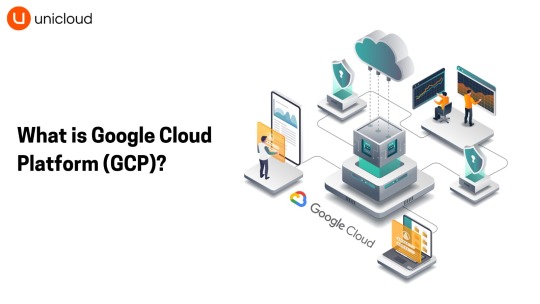
Google Cloud Platform is a suite of cloud computing services provided by Google. It offers a range of tools and services for computing, storage, networking, machine learning, and more. This comprehensive guide explores GCP's solutions, helping businesses leverage its scalable infrastructure and advanced capabilities for enhanced performance and innovation.
0 notes
Text
Chipsy.io Backend Development: Unleashing the Power of Modern Technology
In the fast-evolving world of technology, businesses need robust, scalable, and secure backend systems to support their digital transformation. At Chipsy.io, we specialize in backend development, harnessing the power of cutting-edge technologies to build systems that drive your business forward.
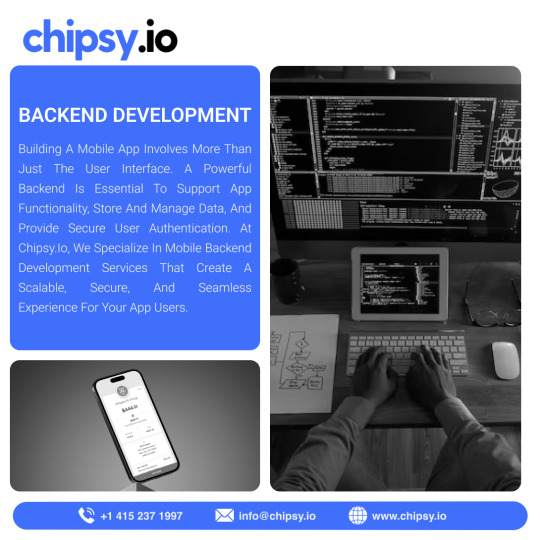
Key Technologies
AWS: Leveraging Amazon Web Services (AWS), we provide scalable and flexible solutions that meet the demands of your business. From EC2 instances to Lambda functions, our expertise ensures your applications run smoothly and efficiently.
Azure: With Microsoft Azure, we deliver enterprise-grade solutions that integrate seamlessly with your existing infrastructure. Our services include everything from Azure App Services to Azure Functions, enabling rapid development and deployment.
Google Cloud Platform (GCP): Utilizing the power of GCP, we build highly scalable and resilient backend systems. Our capabilities include using Google Kubernetes Engine (GKE) for container orchestration and BigQuery for real-time analytics.
Best Practices
At Chipsy.io, we adhere to industry best practices to ensure the quality and reliability of our backend systems:
Microservices Architecture: We design our systems using a microservices architecture, allowing for independent development, deployment, and scaling of each service.
Continuous Integration/Continuous Deployment (CI/CD): Our CI/CD pipelines automate the testing and deployment process, ensuring rapid and reliable releases.
Security: We implement robust security measures, including data encryption, secure APIs, and regular security audits, to protect your sensitive information.
Monitoring and Logging: Our systems include comprehensive monitoring and logging solutions, providing real-time insights and facilitating quick issue resolution.
Future Trends
We stay ahead of the curve by continuously exploring emerging trends and technologies:
Serverless Computing: Our expertise in serverless architectures allows for building highly scalable applications without the need for server management.
Artificial Intelligence and Machine Learning: We integrate AI and ML capabilities into backend systems to provide advanced analytics and automation.
Edge Computing: By processing data closer to the source, we reduce latency and improve performance, especially for IoT applications.
Why Choose Chipsy.io?
Partnering with Chipsy.io for your backend development needs means gaining access to a team of experts dedicated to delivering high-quality, future-proof solutions. Our commitment to excellence and innovation ensures your business stays competitive in a digital-first world.
Ready to transform your backend systems? Contact Chipsy.io today and let us help you unleash the power of modern technology.
#backend development#aws#microsoft azure#mobile app design#artificial intelligence#machinelearning#google cloud platform#google cloud services
0 notes
Video
youtube
Master the Google Cloud Run Serverless Service | Run Nodejs API in Cloud... Full Video Link - https://youtu.be/59jF_IaQHfE Check out this new video on the CodeOneDigest YouTube channel! Learn how to setup google cloud run #serverless service. Run #nodejs API in #cloudrun service. #codeonedigest @codeonedigest @googlecloud @GoogleCloud_IN @GoogleCloudTech @GoogleCompute @GooglecloudPL #googlecloud #googlecomputeengine #virtualmachine #nodejsapi
#youtube#google cloud#google cloud platform#cloud run#serverless computing#serverless#google cloud run service#cloud run service#cloud run serverless service#deploy nodejs api in google cloud run
0 notes
Text
85/366
29 Maret 2024
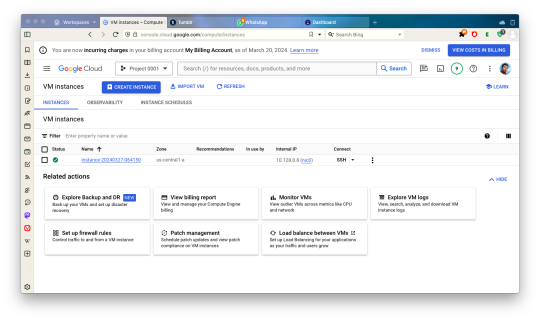
Berawal dari coba coba. dan berlanjut sampai keterusan.
Kemarin, kepikiran aja. Ada GCP tapi mau buat apa? Akhirnya, dahlah bikin server kecil kecilan sekalian buat pengalaman kalau pernah bikin server berbasis cloud (bukan on-premise yang di cloud-in).
Walhasil, punya ide, gimana kalau nyoba pake nextcloud untuk penyimpanan aja. kan lumayan bisa di buat nyadangin file sementara (walaupun kadang juga sementahun).
Setelah oprek yang sekitaran waktu istirahat siang sampai ashar. Barulah bisa launching aplikasinya. tapi dengan catatan aplikasi berbasis web yang di akses dengan IP yang not secure (karena ngga dilapisin ama SSL/TLS.
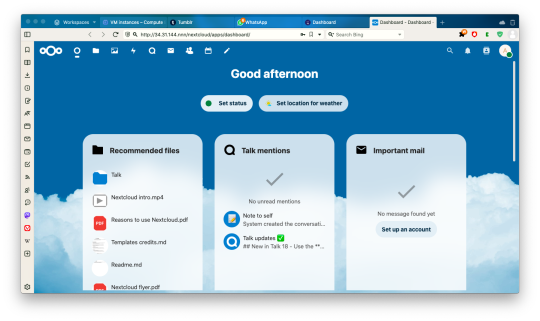
0 notes
Text
#Hire the best Google Cloud Platform Developers#Google Cloud Platform Developers#Google Cloud Platform#GCP
0 notes
Text
Cloud & Devops Services | Nitor Infotech
In today's fast-paced digital landscape, cloud technology has emerged as a transformative force that empowers organizations to innovate, scale and adapt like never before. To know more about Nitor Infotech's services click on - https://bitly.ws/Zyt3
#nitorinfotech#blog#nitor#software development#software engineering#digital transformation#cloud computing#cloud software#clouds#cloudcore#cloud storage#cloud storage services#cloud computing trends#google cloud console#google cloud platform#google cloud#ascendion#gcp cloud vision#pillars of cloud#cloud engineering services#aws cloud migration services#what is cloud data storage#cloud pillar
0 notes
Text
Amazon Web Services, Microsoft Azure, Google Cloud Platform — the Indian Cloud Trinity
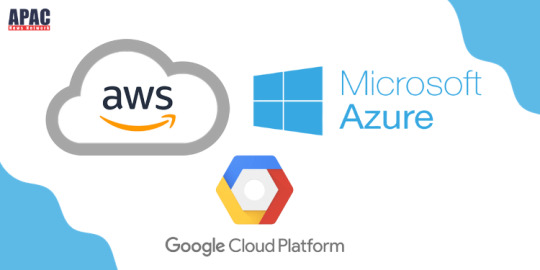
Rajneesh De, Consulting Editor, APAC News Network
Most Indian enterprises, from the large ones to those in the mid-market, have undergone some form of digital transformation especially post the pandemic. This digital transformation journey has primarily been led by the cloud driven approach. In fact most enterprises today have adopted a hybrid multi cloud strategy.
Nearly 88% Indian enterprises today acknowledge that cloud technology is a critical enabler for their digital transformation. Especially with the biggies like AWS, Microsoft Azure and Google dominating the market, the public cloud services sector in India has been growing at close to 30% in the last few years.
In the Infrastructure-as-a-service (IaaS), these three cloud provider biggies have dominated the show among enterprises. Selecting the right cloud computing platform from these three has been subjective for these enterprise CIOs. Normally the CIOs have depended on the following criteria for selecting their preferred cloud provider.
Find a reliable cloud computing platform. While all three of AWS, Microsoft Azure and Google are reliable names, CIOs need to emphasize on security and check feedbacks from enterprises similar in nature.
Evaluate stability. CIOs must check whether regular releases, continuous performance, dispersed platforms, and load balancing are available from their selected cloud provider.
Compare pricing. CIOs must compare the ratio between the cost of running an in-house server versus the available resources of an enterprise cloud
Look for standardized service. The CIOs must check if the cloud service provider offers cost-effective bundles of apps and the resources. Bundled services can save 40% over buying individual services such as IaaS, SaaS, and other digital products.
Evaluate flexibility. Lastly CIOs must check for a flexible and adaptable cloud computing platform that boosts growth and scalability.
Read More - https://apacnewsnetwork.com/2023/11/amazon-web-services-microsoft-azure-google-cloud-platform-the-indian-cloud-trinity/
0 notes
Text
The Evolution of Google: From Past to Future - A Comprehensive Overview of Google's Services
Section 1: Introduction – The Google Story Unveiled As we step into the realm of Google, we embark on a journey through time. This journey takes us from the past, where a humble search engine emerged, to the present, where it has become an integral part of our lives. We’ll also gaze into the future, where the tech giant is poised to reshape our world with its cutting-edge services. Section 2:…

View On WordPress
#Gmail#google#Google Ads#Google Chrome#Google Cloud Platform#Google Docs#Google Drive#google maps#Google Play#Google Translate#YouTube
1 note
·
View note
Text
0 notes
Text
Top 10 Google Cloud Certifications to Boost Your Career

Cloud computing is at the forefront of technological advancement, and it’s not just about financial investments. Companies depend on cloud technologies to host their web applications and power their businesses. Among the top-tier players in this arena, Google Cloud stands tall as one of the world’s leading cloud computing platforms.
Google Cloud has risen to become the third most widely used cloud platform globally, following Amazon AWS and Microsoft Azure. Prominent entities such as Twitter, LinkedIn, Twitch, and even Facebook depend on the robust infrastructure provided by Google Cloud to support their operational needs. To effectively utilize these services, Google Cloud offers a multitude of certifications designed to equip individuals with the knowledge and skills required to navigate its offerings.
In this article, we’ll be your guide to the best Google Cloud certifications suitable for your role and expertise. We’ll look into what each certification entails, enabling you to make an informed choice based on your career aspirations. We’ll also provide you with insights into courses that can kickstart your journey in this thriving industry.
10 Best Google Cloud Platform Certifications
The demand for Google Cloud experts is much higher than the current supply, making each of these certifications a valuable asset in your career. Here’s a curated list of the top 10 Google Cloud certifications that you can aim for:
1. Google Cloud Digital Leader Exam (Best for Beginners)
The Google Cloud Digital Leader Exam is one of the most popular certifications, ideal for beginners who wish to learn both cloud computing fundamentals and Google Cloud Platform (GCP). It serves as an excellent entry point for individuals seeking to understand the basics of cloud computing and how GCP services align with organizational goals.
2. Google Cloud Associate Cloud Engineer Certification (Best for Software Engineers)
For software engineers aiming to develop and create applications on Google Cloud, the Associate Cloud Engineer certification is an excellent choice. This certification assesses your hands-on skills in deploying applications, monitoring operations, configuring solutions for enterprises, and more.
3. Google Cloud Professional Data Engineer Exam (Best for Data Scientists and Data Analysts)
The Professional Data Engineer certification is tailored for data scientists, data analysts, and data engineers. It emphasizes working with data, including collecting, processing, securing, and monitoring data systems. This certification also covers the creation of machine learning models to harness the potential of data.
Data engineers should be adept at designing, building, operationalizing, securing, and monitoring data processing systems, with a strong focus on security.
4. Google Cloud Professional Cloud Architect Certification (For Experienced IT Professionals)
Experienced IT professionals, such as senior developers, solution architects, tech leads, and software architects, will find the Professional Cloud Architect certification to be their best fit. It is in high demand due to its ability to enable organizations to leverage Google Cloud technologies effectively.
This certification assesses your comprehensive understanding of cloud architecture and Google Cloud. It is considered one of the more challenging exams to pass. To excel, you need in-depth knowledge of various Google Cloud services and tools.
5. Google Cloud Professional Cloud Developer Exam (Best for Developers)
Designed for developers, including Java and Python developers, the Professional Cloud Developer certification focuses on building scalable and highly available applications following Google-recommended practices and tools.
Certification holders learn how to use Google-recommended practices and tools for building highly scalable applications. They also gain expertise in working with the latest database technology and developer tools.
6. Google Cloud Professional Cloud Network Engineer Certification
Network engineers and network administrators can benefit significantly from the Professional Cloud Network Engineer certification. This exam is designed for individuals with at least one year of hands-on experience with Google Cloud.
Certificate holders are responsible for managing and implementing network architecture solutions in Google Cloud Platform (GCP), including virtual private clouds (VPCs).
7. Google Cloud Professional Collaboration Engineer Exam
Team leads and tech leads can aim for the Professional Collaboration Engineer certification. This certification is designed for professionals who want to demonstrate their expertise in managing and optimizing collaboration tools and processes. Certification holders are responsible for a variety of tasks, including:
Managing users and resources Monitoring organizational operations Ensuring compliance with organizational policies and procedures Identifying and resolving technical issues Collaborating with other teams and departments
The Professional Collaboration Engineer certification is a valuable credential for team leads and tech leads who want to advance their careers in the field of collaboration engineering.
8. Google Cloud Professional Cloud Security Engineer Exam
Security professionals working on Google Cloud can enhance their careers with the Professional Cloud Security Engineer certification. This certification is in high demand, as it enables organizations to design and implement secure workloads and infrastructure in Google Cloud.
Certificate holders are well-versed in security best practices and responsible for designing and implementing secure solution architectures in the Google Cloud Platform (GCP).
9. Google Cloud Professional Machine Learning Engineer Certification
Certificate holders of the Professional Machine Learning Engineer certification design and build machine learning models to address real-world and business challenges using the Google Cloud Platform (GCP). They also possess the skills to prepare and process data for machine learning.
10. Google Cloud Professional Cloud DevOps Engineer Certification
The Professional Cloud DevOps Engineer certification focuses on ensuring the efficient operation of development processes and efficient software building using the Google Cloud Platform. It is ideal for DevOps engineers and those responsible for software development operations.
Join Datavalley’s Multi-Cloud Architect Master Program
As you start your journey to become a Google Cloud expert, consider enrolling in Datavalley’s Multi-Cloud Solutions Architect Master Program. This comprehensive program will equip you with the knowledge and skills needed to excel in the world of cloud computing. Don’t miss the opportunity to be at the forefront of technological innovation — join Datavalley today.
In a rapidly evolving tech landscape, Google Cloud certifications are your ticket to staying relevant and competitive in the job market. Whether you’re a beginner or an experienced IT professional, there’s a Google Cloud certification that can help you take your career to new heights. Don’t miss out on the chance to enhance your skills and open doors to exciting career opportunities.
Course format:
Subject: Cloud Architect Classes: 200 hours of live classes Lectures: 91 lectures Projects: Collaborative projects and mini-projects for each module Level: All levels Scholarship: Up to 70% scholarship on all our courses Interactive activities: labs, quizzes, scenario walk-throughs, projects Placement Assistance: Resume preparation, soft skills training, interview preparation
For more details on the Multi-Cloud Solutions Architect Master’s Program, visit Datavalley’s official website.
#datavalley#dataexperts#data engineering#data analytics#dataexcellence#data science#business intelligence#power bi#data analytics course#data science course#multi cloud#google#google cloud platform#google cloud certifications#cloud computing
1 note
·
View note